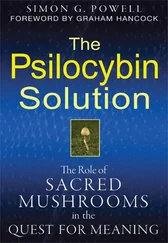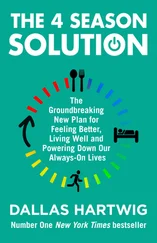Mildred took in his words without comment.
Milton’s voice lowered and softened. “All of this is not an indictment against men and women or our children. It is simply the way it is. It is human nature. It is who we are. The reality of the human animal is that if we are not watched, policed, graded, tested, and evaluated, we will not do well.”
“That isn’t true of everyone.”
“No. You’re right. It isn’t. There are exceptions in each of the situations I described above and countless others. There are some people who are not aggressive, who will not take advantage of an undefended nation. There are honest employees, men and women who won’t steal from their bosses whether they are watched or not. There are workers who push themselves far harder than any foreman would ever dream of pushing. And there are students who do come to learn and will do so voraciously, taking advantage of every opportunity provided. The mistake is when you attribute the traits of these individuals to all others.”
Her tone neutral, rather than accusatory, Mildred stated, “Then you’re a cynic.”
Milton allowed himself a wan smile. “Someone who is a ‘Pollyanna’ sees things more positively than they are. A cynic is at the other end of the spectrum. Neither bias produces an accurate read on what is seen. I try…I hope that I am a realist. I recognize everything that I’ve described to you as being a fact of human nature. But I also see the good within humanity, the potential to rise above, to be heroic, noble, honest, fair, decent, and kind. In other words, to be exceptional.”
“So do I.”
“That is where we differ. You believe that all people are born that way and will inherently live their lives that way, unless they are thwarted by some outside force. For you, Mildred, all people are exceptional until they encounter an oppressive leader or a greedy boss. At that point, you believe they become victims. And because they started out as exceptional and only became bad children, bad parents, bad employees, or bad citizens as a result of their victimization and oppression, they cannot be blamed. You believe that if we could only remove the malignant influences on people from the moment they are born, they would all be exceptional.”
“There are nasty and ugly people out there! They do victimize. Don’t try to tell me that the wealthy businessman isn’t trying to hold on to his wealth and keep the others down.”
“He is trying to hold on to his wealth. In fact, he is trying to increase it.”
“Because a billion dollars isn’t enough for those people. They need two billion…three…ten billion.” As she spoke, her former feistiness crept back into her voice, and Milton became concerned that this was going to degenerate into another in a long line of screaming conflicts between them.
Trying to shift the direction of the conversation slightly to mollify her, he asked, “What’s the alternative?”
He watched as she calmed somewhat. “We need to remove the incentive to make egregious profits.”
“You know I disagree, but tell me, how would this be done?”
“A graduated tax, increasing to a higher rate the more they make.”
“Since people always work in their own self-interest, what happens under a graduated tax is that their need, as they perceive it, to make even more money increases as they are taxed at the higher rates. They must redouble their profits just to compensate for what is being taken from them. So that would not solve the problem, as you perceive it; it would exacerbate it.”
“Not if once they passed a threshold, a certain income level, the tax rate became one hundred percent. Then there would be nothing they could do, no amount they could make which would compensate for that.”
“That’s true. If the government decided the maximum that people should be allowed to make, and took everything above that amount from them, you are absolutely right; they would no longer have any self-interested motive to cross that line. By the way, what would that number be?”
Mildred began to answer and then stopped herself.
“Come on, Mildred, what’s the number? Is it a billion dollars a year?”
“No, that’s much too high.”
“One hundred million?”
“Too high.”
“A million?”
“No…yes. I’m not sure.”
“Aren’t there several people on your side of the ideological fence who believe that a million dollars is much more than a person needs to make?”
“That’s true. There are.”
“So even if you felt that a million was a good threshold, there would be others who fought against you, maintaining that such an amount was extravagant?”
“Yes.”
“For the purpose of our little chat here, let’s say that you got your way — that the threshold was set at a million dollars, and every dollar in excess of that amount had to be turned over to the government. What do you think would happen next?”
“Well, I think that the wealthy would have no choice but to share it, pass it down to the employees.”
“So, back to your ‘wealthy businessman’…you think that he would simply share it? Put it in a pension plan or a profit-sharing plan?”
“Or give higher wages and benefits.”
“He wouldn’t.”
“What do you think he would do?”
“He would leave. He would leave the United States and find a country which allowed him to make more money, gain more recognition, earn more prestige.”
She began to rebut him, when he interrupted her. “Mildred, just as your residents left to come to Madison.”
She stopped. As Mildred had plunged, over the past several minutes, into the familiar and somehow comfortable debate with her brother, she had briefly forgotten about Walden. The reality of the failure of the community — her failure — came flooding back to her.
His voice once again becoming gentle, Milton continued, “Aegis has been an experiment, an experiment to determine human nature, whether we are born with exceptionalism or we are not. I believe that it has to be earned, to be striven for. I believe that the flaws and frailties which produce the other behaviors, the nasty and unpleasant ones, are the natural condition and that it takes hard work and consistent effort to overcome them, to drive them out of oneself. It is that basic difference between us which prompts those of your philosophy to eschew the concept of an exceptional person. Because if all people are born with it, by definition they cannot be exceptional; they would merely be normal.”
She started to speak, but he cut her off. “But watching, enforcing, disciplining, grading, and the rest are only half of the equation. The other half is to reward, since people will only operate, with rare exceptions, in their own self-interest. That was what intrigued me when we came to Aegis and when Walden and Madison came into existence.”
“What’s that?”
“The normal, traditional ways to reward were eliminated. We have no currency. No one here can attain or exceed that million-dollar cap you propose. The housing, clothing, and food are all provided. There is no access for the purchasing of status items. To be honest, Mildred, I was initially convinced that Aegis was a ready-made environment, a perfect medium, for you and your belief structure.”
“I remember,” she said, a slight trace of a smile coming to her face. “Not too long after we arrived, you shouted at me that Aegis was nothing but a commune.”
He smiled in return. “It definitely looked that way. I was certain that your philosophy would be the one which prevailed in here, rather than mine.”
Her smile quickly left, replaced by an expression of forlorn dejection. “It didn’t work out that way, did it? Walden is essentially dead. Less than forty people left. How many do you have in Madison?”
Читать дальше












